Business View Caribbean has a conversation with the Honorable Karl Samuda from The Ministry of Industry Commerce Agriculture and Fisheries – Jamaica
A conversation with the Honorable Karl Samuda
This past February, in the country’s general elections, the Jamaica Labor Party (JLP) won a narrow victory over the governing People’s National Party (PNP) and formed a new government. As a result, the incoming administration, as it is wont to do, reshuffled some of the cabinet ministries and appointed new heads of the various government departments. The new Ministry of Industry, Commerce, Agriculture, and Fisheries is now being led by the Honorable Karl Samuda, CD, MP.
Recently, Business View Magazine spoke with Minister Samuda in a free-wheeling discussion about his Ministry’s functions, as well as the general business environment on the island, today. The following is an edited transcript of that conversation:
BVM: Mr. Minister, can you begin by telling us about the makeup of your new Ministry?
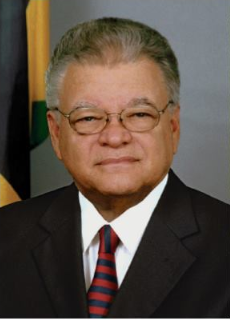
Hon. Karl Samuda
Samuda: “This is a very comprehensive Ministry. It now incorporates industry and commerce, along with agriculture and fisheries. The reason for that is very simple: what we have come to realize is that it is best if we look at agriculture as a business and a very big business. So, we are incorporating into this Ministry all the elements of business, including a great emphasis on the MSME (Micro Small and Medium Enterprises) sector. And so, we are viewing agriculture as part of the business community and our farmers as members of the MSME fraternity. In this way, we incorporate all elements of both agriculture and business – which has worked out very, very well.”
BVM: What particular programs or initiatives are fundamental to the Ministry’s mandate; how does it provide support and governance to the businesses of the island?
Samuda: “We seek to expand the production of food and farm produce, ranging from livestock to vegetables. One of our initiatives is the linkage between the Ministry of Industry, Commerce, Agriculture and Fisheries with the Ministry of Tourism, where we have established a council that addresses the needs of the tourism sector. And, in this way, we are able to produce more of the items that are used by our visitors to the island, and we retain foreign exchange because we don’t have to buy them from overseas. So, we are seeking to use the tourism sector as an export industry. It’s just like exporting to the United States, but we ‘export” to the various hotels within the sector.”
BVM: What percentage of the country’s GDP (Gross Domestic Product) comes from the agricultural sector?
Samuda: “The agricultural sector, by itself, provides over 30 percent of the total employment in the country, and is running between seven and nine percent of GDP. But we are hoping to move that up quite a bit. Over the quarter, ending this past June, 2016, the agricultural sector grew by 13.5 percent, and we contributed, in that quarter, 0.5 percent of GDP growth. So, we are hoping, and expecting, that with the thrust in production of agriculture products, that we will contribute, over the next four years, in the region of two to three percent of the Gross Domestic Product.”
BVM: How does the Ministry attract new foreign investment?
Samuda: “Our foreign investment portfolio is handled by JAMPRO (Jamaica Promotions Corporation), one of the agents of government, and, of course, the Ministry. I, myself, just returned from London two weeks ago, where we met with distributors and regulators to determine the criteria under which our exports are accepted into their country. And we are hoping to give them the level of confidence that they need to purchase our goods by maintaining international standards on a consistent basis. If we are not certified, we won’t be able to attract the markets that we are seeking to penetrate. That’s one of our main missions – to convince purchasing agents overseas that our products carry the level of integrity and consistency that is required and meet all the sanitary requirements of international trade.”
BVM: Is the Ministry involved in the ongoing process of attempting to establish Jamaica as one of the world’s major international logistics hubs alongside Singapore, Dubai, and Rotterdam?
Samuda: “As a government, we are all plugged in to the notion of making Jamaica an attractive destination for transshipment. We have one of the seven best natural harbors in the world; we are ideally located. But, like most of the ports along the eastern seaboard of America, we have had to dredge our port facilities in order to make way for these larger vessels, now coming through the Panama Canal. We are about to start dredging now, so we will be accommodating them in short order.
“In addition to that, we are seeking to build out, adjacent to our main Port of Kingston, and also in Montego Bay, logistics facilities to accommodate transshipment in a meaningful way. And, of course, to be considered an effective logistics hub, you have to have the basic infrastructure in place, such as multi-modal transportation – air, land, sea, and rail. So we are busy at work trying to make sure that all of these infrastructure requirements are in place as soon as possible. So far, we have done extremely well in our ‘soft’ infrastructure. For instance, our telecommunications is quite advanced. Our hard infrastructure – our road system and our transportation sector is constantly being improved. We have our challenges, but we are becoming much more advanced in making those facilities that are required, available to the international investing community.”
BVM: How do these improvements and upgrades get financed?
Samuda: “In some instances, we have investors who underwrite costs that are not funded from the public purse. For instance, our road network system that was recently completed – the north/south highway – was constructed by the Chinese, utilizing their own funding; and they get their revenues through the tolls. This is the sort of public/private partnership that we’re seeking to encourage, where we, in some instances, will be required to offer our share of the investment, such as land, and they will put up the necessary capital to build out the infrastructure and collect their revenues from the type of business that they engage in. That’s the model that we’re trying to adopt because we are coming out of a difficult economic period and we don’t have the fiscal strength to accommodate any kind of investment based on loans. We’re trying to maintain our debt-to-GDP ratio by containing our exposure and encouraging foreign investors to come in and partner with us.”
BVM: On the Ministry’s website it says that it is charged with ‘spearheading the modernization of industry.’ What specific programs or agendas address that imperative?
Samuda: “We encourage existing businesses to modernize their equipment and to introduce new technology. And through the application of this new technology, output will be much more competitive. So, there are incentive schemes that are very encouraging to investors coming in. For instance, we had a free-zone structure which has just been superseded by the ‘special economic zones,’ which will have designated areas where certain incentives are provided for investors who move into a zone where there is no duty paid. And we’re going to expand these throughout the island, where appropriate, to encourage investors to go in there and conduct business.”
BVM: Does the Ministry invest resources in marketing or disseminating information to individuals and businesses?
Samuda: “That is primarily the role of JAMPRO (part of the Ministry of Economic Growth and Job Creation). JAMPRO is the one that markets the Jamaican product, which includes business opportunities. But we do have publications and we hold seminars and we hold trade shows to showcase what we do produce.”
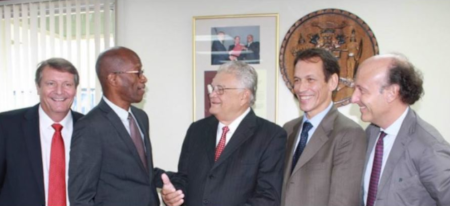
BVM: Are there any sustainable, or so-called ‘green’ initiatives that come under the purview of your Ministry?
Samuda: We have embarked on an active program for organic farming. And that is pursued, primarily, through the greenhouse concept of aquaponics. We’re trying to increase that because the demand for it is growing, especially where you don’t apply any fertilizers and chemicals. It hasn’t gotten to the level where we have reached any standard where we can now start to promote a massive export program based on organic farmers’ produce, but we certainly will be moving in that direction and we’re trying to encourage everyone to do that kind of agriculture.”
BVM: What are your goals for the next year, or even for the next several years, and what challenges are there to overcome?
Samuda: “We’re trying to train our farmers in agricultural techniques; how to improve production; how to expand output; how to be consistent; how to engage in appropriate farming practices that will protect our final products against anything that would have them rejected when we export them or be resisted domestically by the consuming public of Jamaica. We want to produce the best agricultural products, possible. And that can only be done with appropriate training and appropriate technologies. We do that through what we call ‘agri-parks,’ where we introduce into a geographical area the necessary infrastructure – water, energy, good farming practices, adequate roads, all the necessary supplies in the quantities, necessary, to get the best output.
“And we’re trying to expand our sources of water to service the agricultural sector. Far too much of our irrigable land is without actual irrigation at this time, and we are relying on rain-fed irrigation. We are trying to ensure that more water reaches the best agricultural lands in the country, where we feel that we can expand, exponentially, the output.
BVM: Can you speak a little about the fishing industry in Jamaica?
Samuda: “That’s an area that we can expand. We are limited in our fisheries to servicing our subsistence needs. We do export conch and, to some extent, we export some of the lobsters that we harvest. But the industry is not one that produces sufficient raw materials to process and export in any major quantities. We have to start exploring the possibilities of the pelagic, migratory fish that live in the deeper waters. But it’s very expensive and, so far, the types of activities in those areas are rather limited. But, we’re looking at it to see what we can do to engage in that kind of fishing.
BVM: In summation, what are some of the most important points you would like our readers to know about your Ministry?
Samuda: “That Jamaica has embarked on a model of agricultural expansion, and improvement of the lives of farmers that includes the holders of capital partnering with the farming community. That is, those persons and companies that are engaged in other activities – industry, distribution, tourism – will partner by providing capital to the farmers who will then, under contract, produce their needs that they can market; and, at the same time, satisfying the needs of the farmer, so that the farmers can produce without the difficulties that are associated with limited capital, unreasonable interest rates, and inconsistency of sales because they have to market their own product. If those provisions could be made through the marriage of the holders of capital and the farmers, then that is a marriage that could see the expansion of agriculture in Jamaica. That is the cornerstone of our strategy – to make those with capital appreciate the important role that agriculture plays, and the kinds of profits that can flow from that partnership.
“We also focus on agro-industry, where we move from primary production into secondary, so we use what we produce to add value; where the manufacturing community and the agro-processors can use the produce from our farms to create the kind of attractive goods that can be marketed overseas and earn foreign exchange. That is the direction we have to go.
“For example, we have traditionally been accustomed to growing cane; we process the cane and create sugar. And then, we ship it, in bulk, to the United Kingdom. They take it and refine it into refined sugar and sell that sugar back to us. Well, the time has come for us to do the refining, ourselves, rather than just taking the raw sugar and shipping it overseas for somebody else to process. The time has come for us to look at converting that raw material into a finished good that can be packaged and marketed overseas and domestically.”
AT A GLANCE
WHO: The Ministry of Industry, Commerce, Agriculture, and Fisheries
WHAT: A ministry of the government of Jamaica
WHERE: Kingston, Jamaica
WEBSITE: www.miic.gov.jm

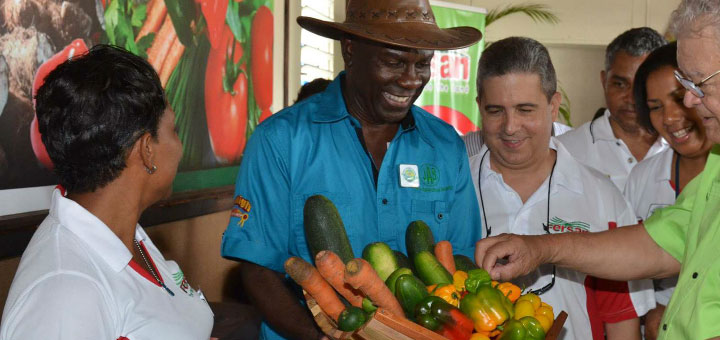
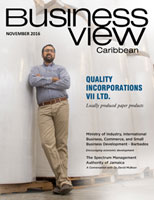
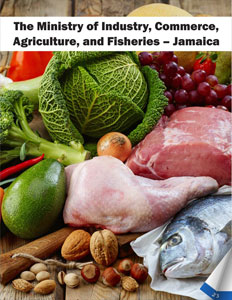
 This information will never be shared to third parties
This information will never be shared to third parties